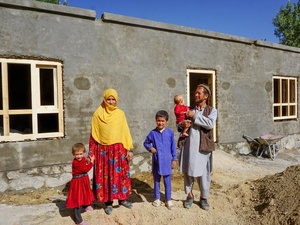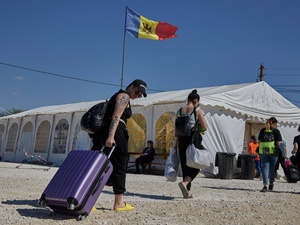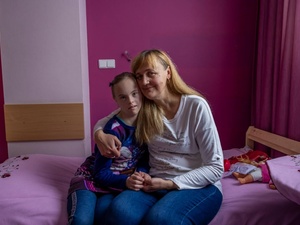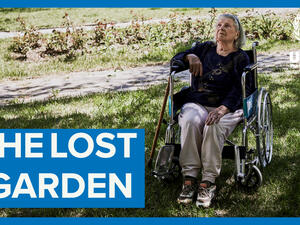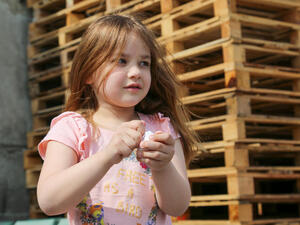Refugees in Moldova get on the property ladder with UNHCR help
Refugees in Moldova get on the property ladder with UNHCR help

Children at the handing over ceremony for the new apartments in the village of Mereni.
CHISINAU, Republic of Moldova, April 19 (UNHCR) - After years of living in sub-standard and frequently costly housing, refugees in Moldova are reaping the benefits of a scheme that demonstrates how the country can provide inexpensive housing solutions for vulnerable people.
The new pilot housing scheme, established by UNHCR and the European Union (EU) under a local integration project for Belarus, Moldova and Ukraine, has seen four apartments handed over to refugees in the village of Mereni, about 25 kilometres south-east of Chisinau.
Refugees from Chechnya, Armenia, Palestine and Sudan received symbolic keys to their new homes. A further four apartments are under renovation in neighbouring Razeni and should be ready in a few weeks.
At present, refugees in Moldova must compete with local residents for affordable housing. But the new scheme has seen UNHCR renovate dilapidated buildings, attracting keen interest from Moldova's government.
Speaking at the recent hand-over ceremony in Mereni, Deputy Prime Minister Mihai Moldovanu said Moldova must help ensure that refugees find housing. "Any society that claims to be democratic must fully respect the rights of its members and people living on its land," he said.
Tanzila Cartoeva, an ethnic Chechen who came to Moldova in 1997, was among the refugees to benefit from the pilot project. She said her new apartment will help resolve a lot of the problems she has encountered raising four children.
"We spent so much money on rent and utility bills, it was impossible to have some savings or even cover our essential needs," Cartoeva said. "Now as we move to a new apartment which is much more comfortable and pleasant than the one we lived in before, our family can not just survive, but properly live." She added that she would "try to find a job here which will be favourable both for the community and my family."
Under the arrangement UNHCR negotiated out with the local authority, beneficiaries of the pilot scheme will live rent-free in their apartments for up to five years, thus saving money they can put aside to buy a home. Then the apartments may be allocated to other needy refugees. The refugee families will contribute to the upkeep of their new homes and pay utility bills.
Under the local integration project, UNHCR offices in Belarus, Moldova and Ukraine implement various activities in self-reliance, housing and language training to help refugees better integrate in some of Europe's poorest states.
In Moldova, the local authorities in Mereni and Razeni villages offered dilapidated buildings to the UNHCR for free. Architects working for UNHCR designed modest space-efficient apartments in run-down buildings.
"UNHCR is grateful to the European Union and the villages for support and we hope that the government may be able to offer more assistance in the future to help refugees integrate," said UNHCR Representative Peter Kessler.
By Evghenia Stupak in Chisinau, Republic of Moldova


